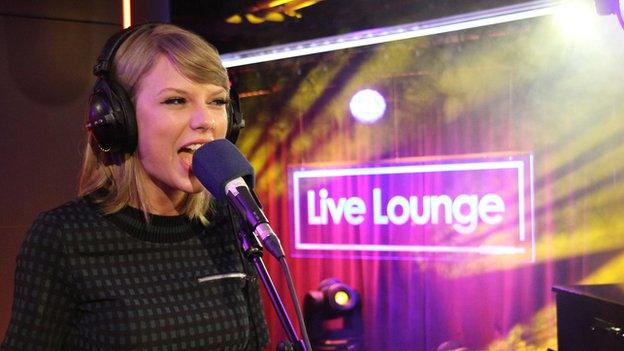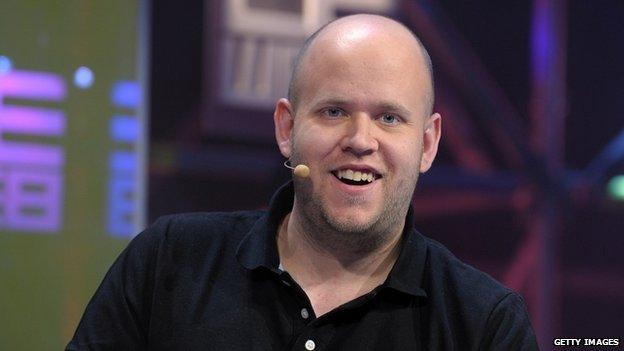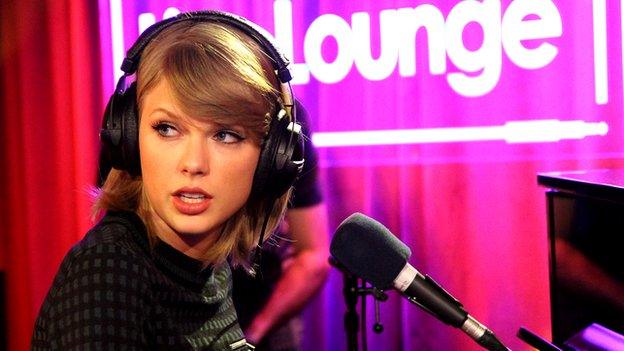Taylor Swift versus Spotify - the fight continues
- Published

Daniel Ek, the CEO of Spotify, has responded to Taylor Swift's decision to pull her entire back catalogue of music from his streaming site.
Taylor's music disappeared from Spotify just over a week ago.
In the same week her latest album 1989 sold 1.3m copies.
"Taylor Swift is absolutely right: music is art, art has real value, and artists deserve to be paid for it," Daniel Ek said in a blog post.
"We started Spotify because we love music and piracy was killing it.
"At our current size, payouts for a top artist like Taylor Swift are on track to exceed $6 million (£3.8m) a year, and that's only growing - we expect that number to double again in a year.

"Any way you cut it, one thing is clear - we're paying an enormous amount of money to labels and publishers for distribution to artists and songwriters, and significantly more than any other streaming service."
Meanwhile, in an extended interview with Fearne Cotton to launch Radio 1's visual output on the BBC's iPlayer, Taylor says the question of why she doesn't strip off more on stage comes up all the time.
"Like, 'Why don't you dress like…' and then they name a few girls in the industry," says Taylor without naming names.
"And I'm like, 'Well, you wouldn't be asking Bruno Mars why he doesn't take his clothes off because he's known for being a musician.'
"And I'm known for being a musician too. It's just a choice you make, you wear what you want to wear as musician and hopefully that comes from your own vision of yourself."

She makes a fair point.
When was the last time Ed Sheeran or Sam Smith were asked about flashing the flesh?
Actually, don't Google that, but you don't have to look far to see debates raging online for and against the outfits that Miley Cyrus or Rihanna choose to wear on stage or at events.
"When I look around at these awards shows you see people wearing anything," he says. "From Florence and the Machine she's wearing this beautiful flowing gown, or if you see someone else wearing a bikini on stage.
"I'm totally fine with both as long as it comes from that individual artist."
And that's the point Taylor really wants to drum home.
"I wouldn't like to think that there's a team of managers or image consultant type people who are saying you need to wear less clothes so you'll sell more albums."
Taylor doesn't go into specifics on anything she may or may not have witnessed but added: "As long as a woman feels like she is expressing her own sexuality or feels empowered looking a certain way on stage, just follow that.
"I applaud that, but I do think it's harder for women I honestly do, in music, in everyday life, in the media, the perceptions are a lot harsher when you're talking about a woman and that's… I think it's just a fact at this point."
Follow @BBCNewsbeat, external on Twitter and Radio1Newsbeat, external on YouTube